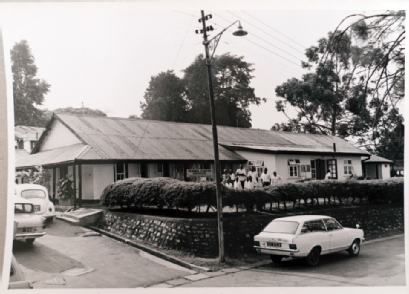Calendar
seminar: Dr Marissa Mika (University College London) Where There is no Incinerator: histories of Biomedical Disposability and Reuse on the African Continent
Please note new time.
Refreshments served. All are welcome!
A joint event with the Gloabl History and Culture Centre.
When we think of cancer and the South, we often think of a place “without oncology” particularly in Africa where biomedical interventions have long been associated with addressing infectious diseases and improving maternal and child health (Livingston 2012). As the onco-technological fixes of radiotherapy and chemotherapy slowly roll out on the continent, so too do the questions about how to procure radiotherapy sources and chemotherapy vials, and what happens to these toxic treatments after they burn and poison. This paper offers a deep historical and ethnographic analysis of the issue of procuring, reusing, and disposing of the stuff of oncological work at the Uganda Cancer Institute, where I have worked since 2010. The Institute began fifty years ago as a site of chemotherapy research and experiment. Today it serves as the key site of public oncology goods in the Great Lakes Region, seeing over 40,000 patients a year. The essay takes us into the material practices and embodied experiences of administering drugs that have powerful, violent effects. The drugs themselves are toxic and are harmful not only to the cancers they target, but also to the patients who endure them and the health workers who administer them. The physical spaces of the chemotherapy mixing station and the drug administration chair can amplify these harms, due to minimal ventilation and crowding. Building on these issues, I draw out three central contradictions in oncological practice at the UCI: the thin line between disposability and reuse; the contradictions of scarcity in a place of abundance; and the (longstanding) theme of healing and harming in health work. 
